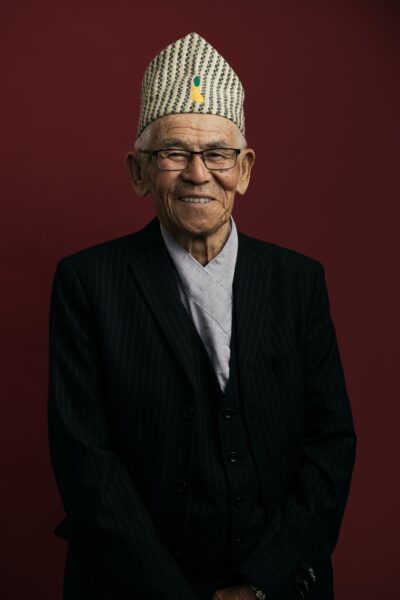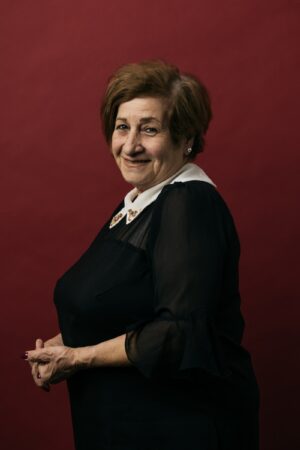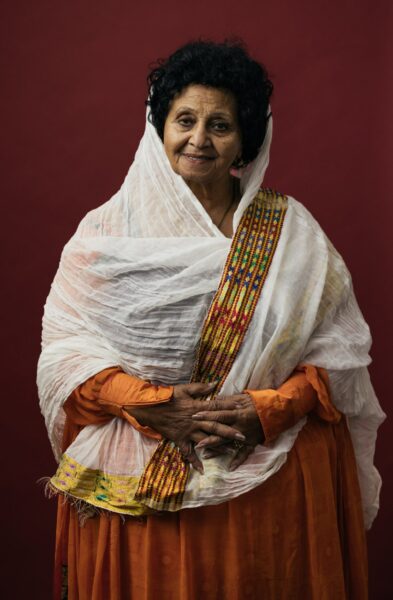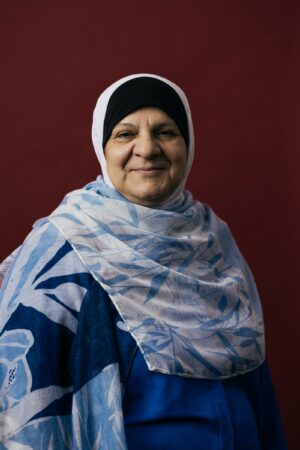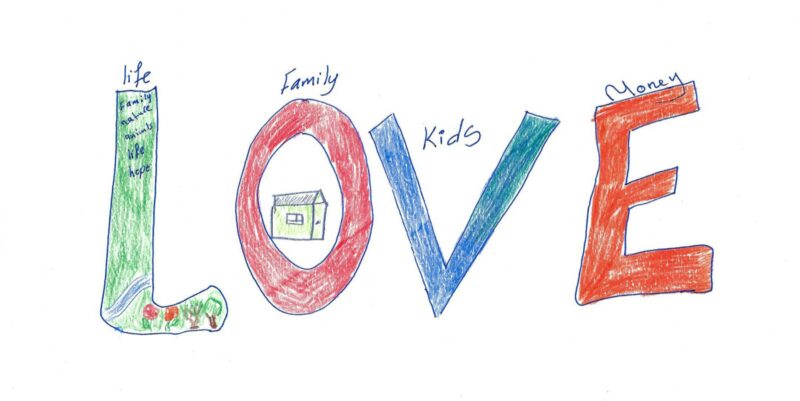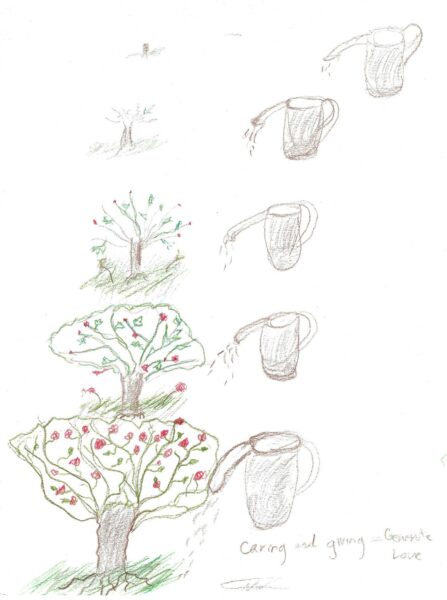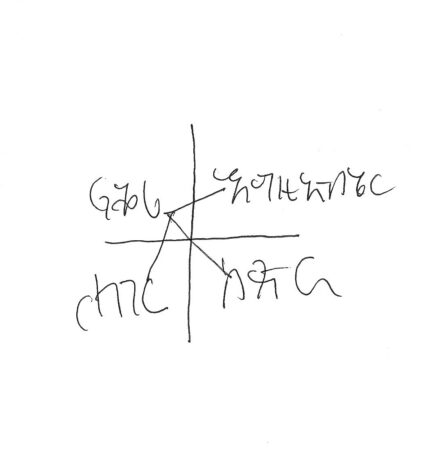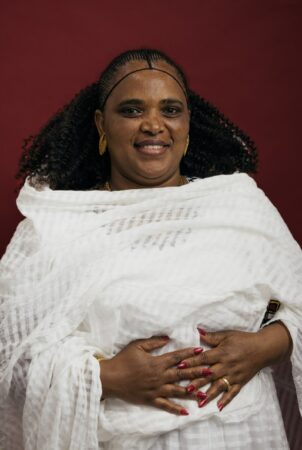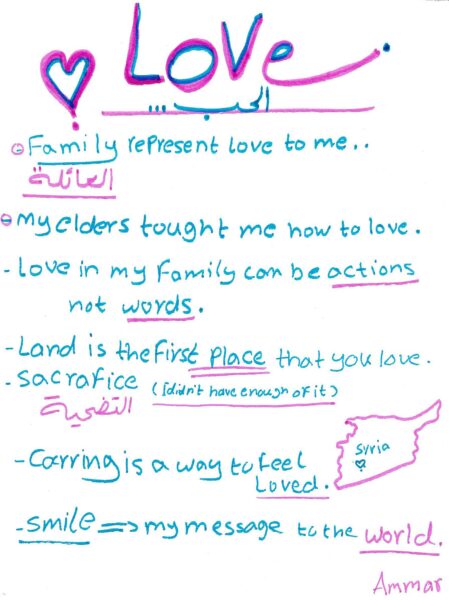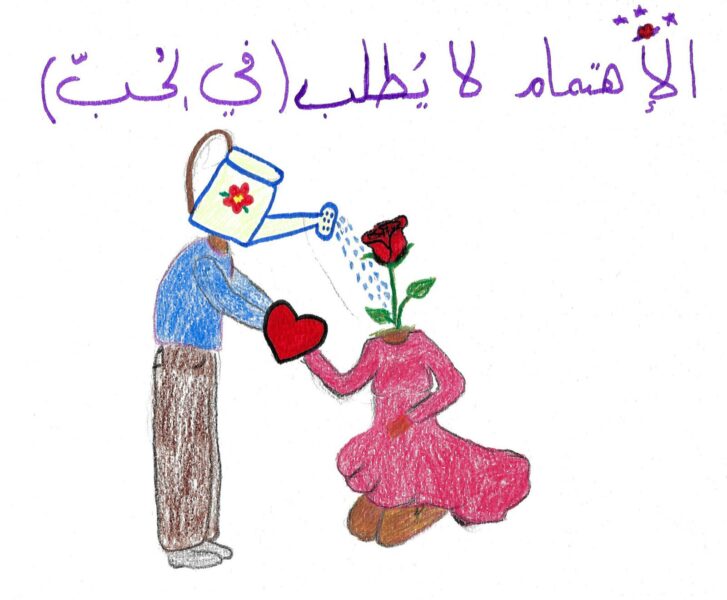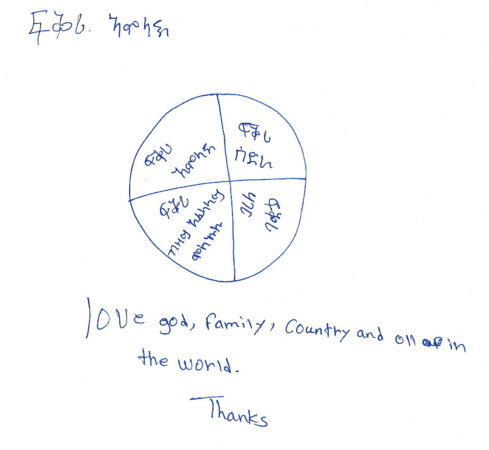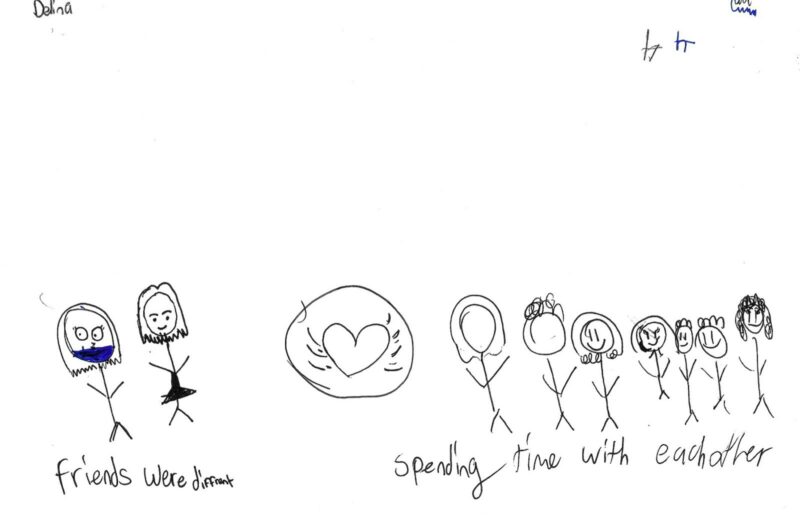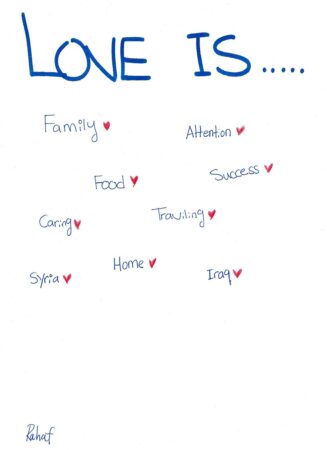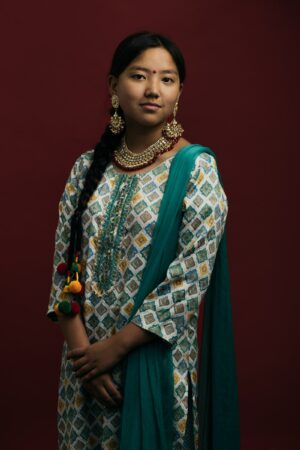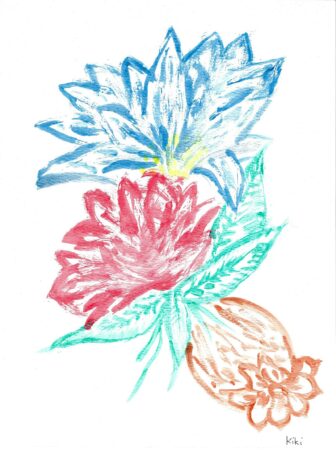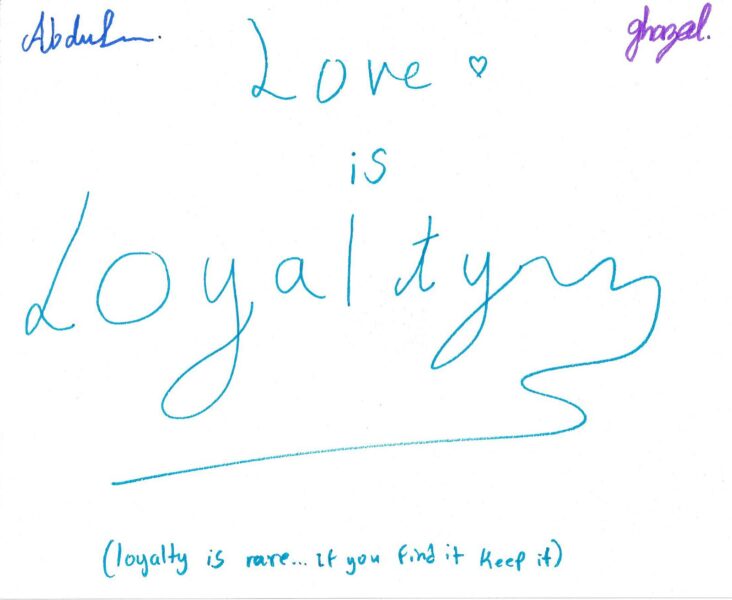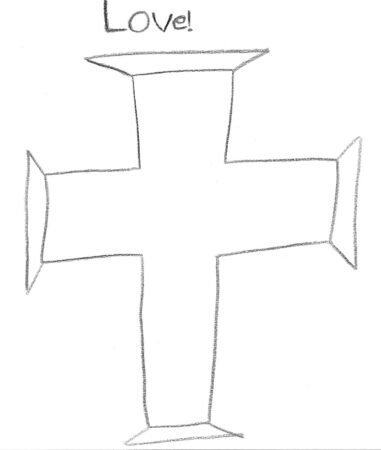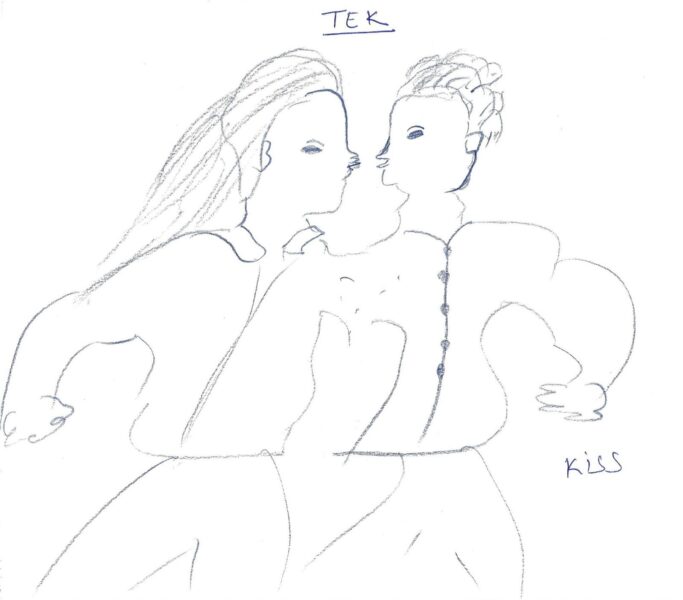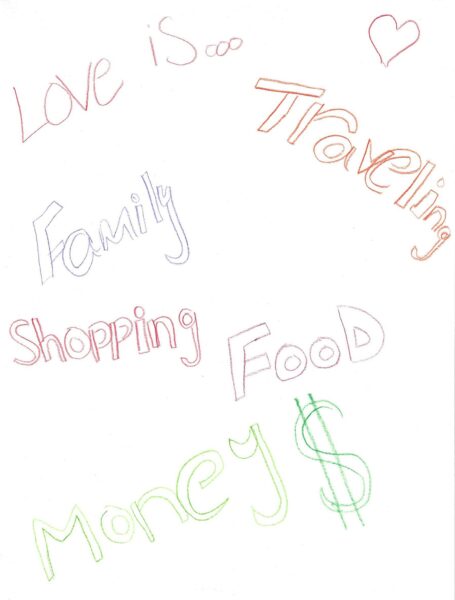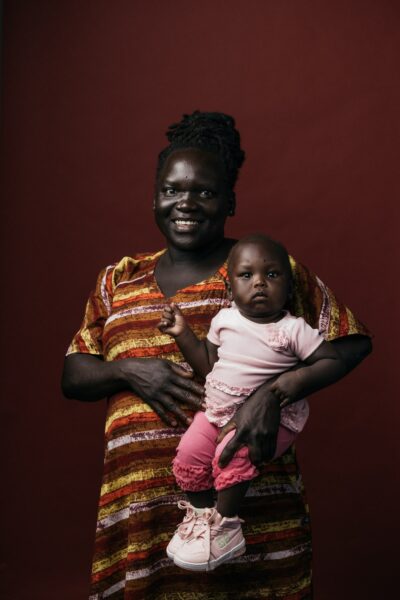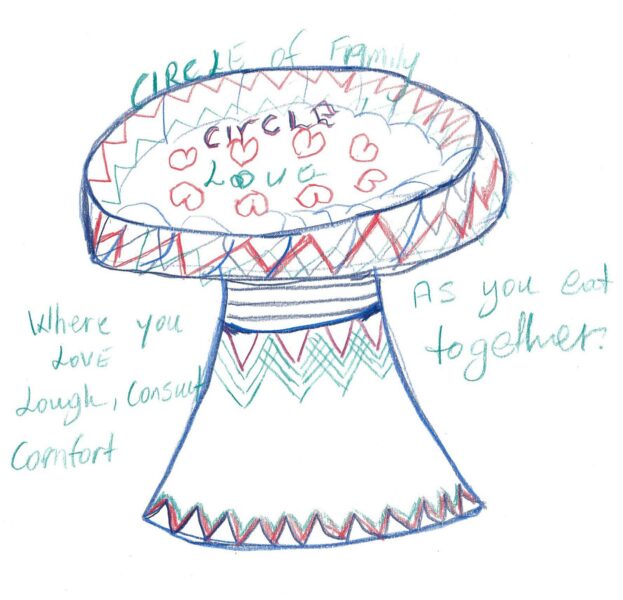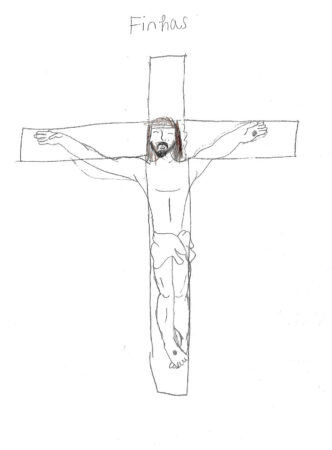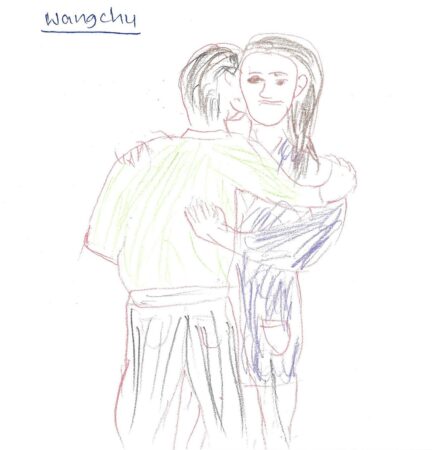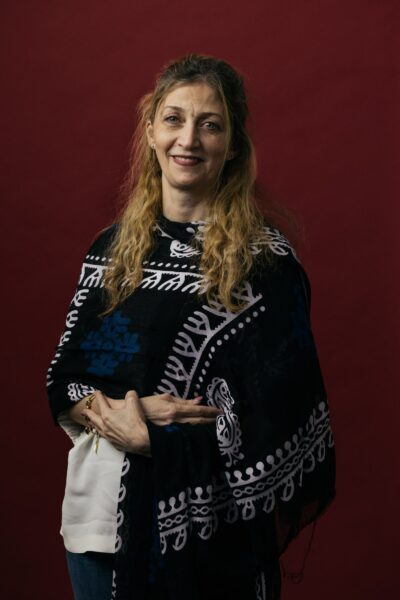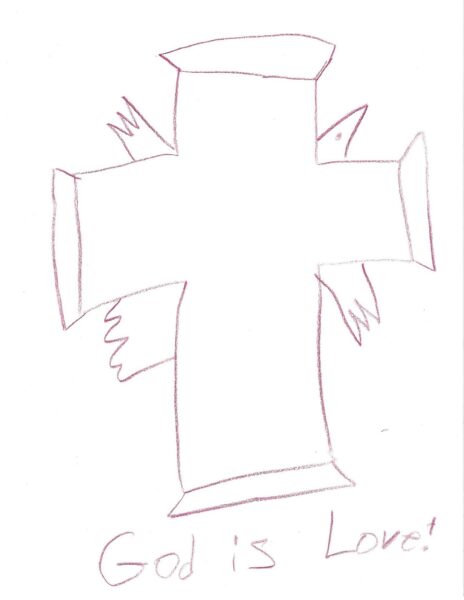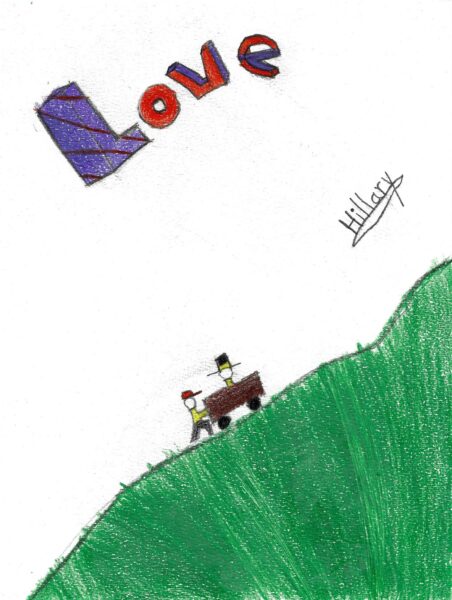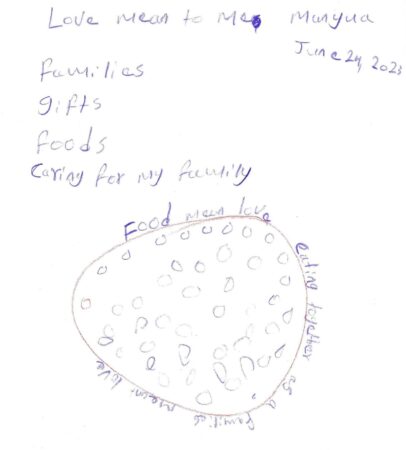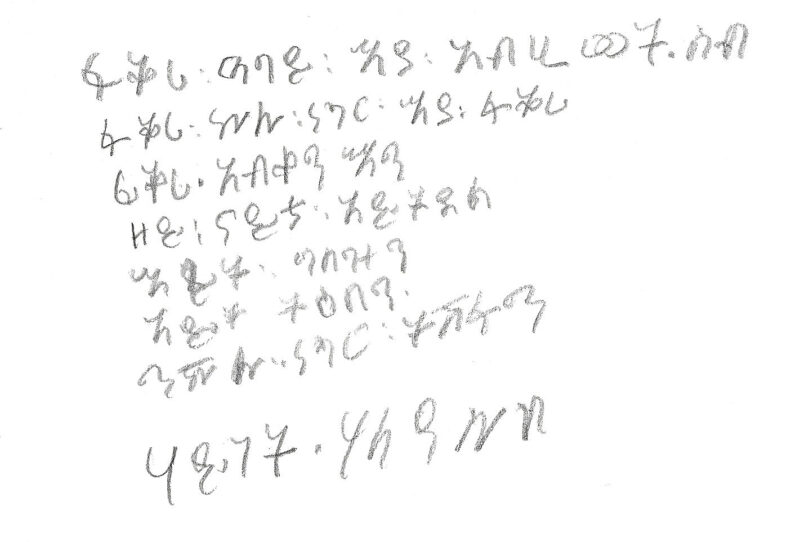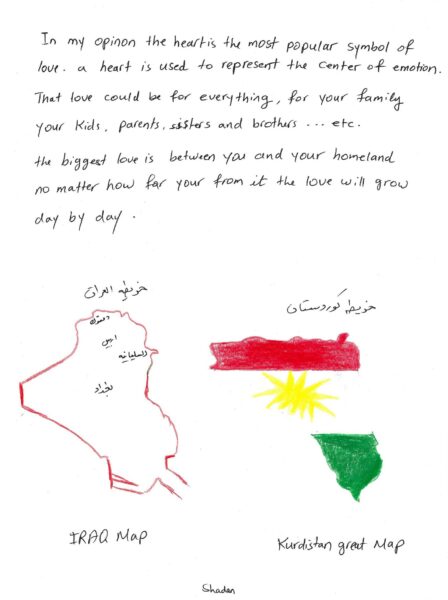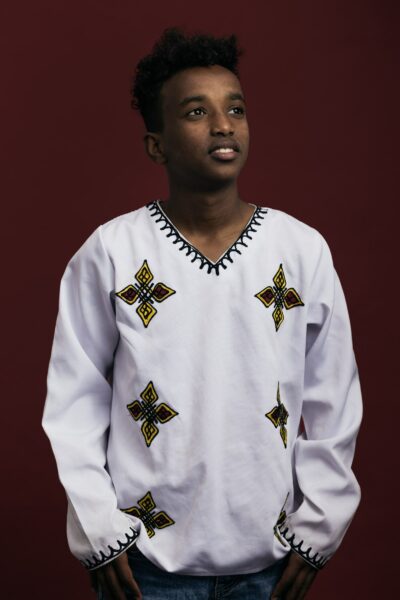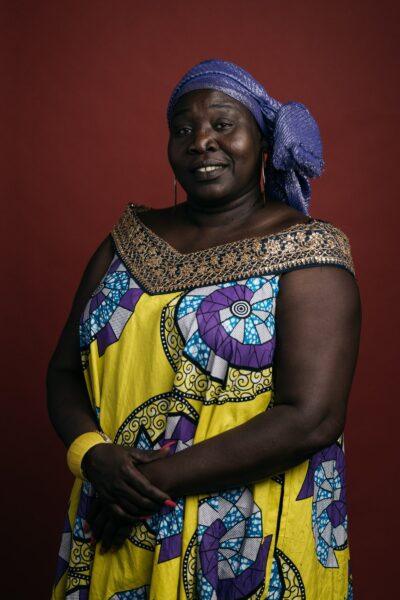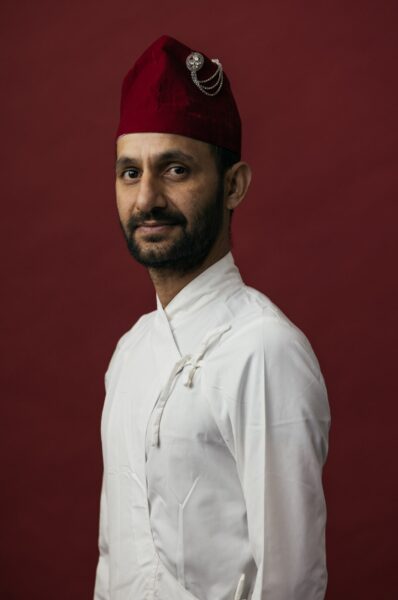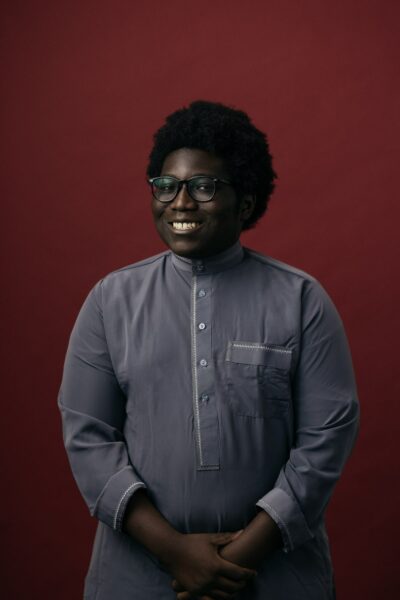Love
Amour
الحب
Hub
Lekness
خۆشەویستی
प्रेम
ፍቕሪ
Love is…
From romantic relationships to parent-child relationships, from friendships and companionships to duty and loyalty, what is this infinite mystery that keeps us alive, binds us, nourishes us, gives us hope, humbles us, sheds wisdom, kills and gives birth? For all of time it has sparked war and brought together tribes and nations. This is a universal mystery that has forever crafted stories, poems, paintings, theatre, and generations. It makes us laugh, it makes us weep, it makes our hearts expand, it makes our hearts contract. Love is…
L’amour, c’est…
Des liaisons romantiques aux liens entre parents et enfants, des amitiés et de la camaraderie aux obligations et à la fidélité, qu’est-ce que ce mystère infini qui nous garde en vie, qui nous unit, qui nous nourrit, qui nous donne de l’espoir, qui nous enseigne l’humilité, qui nous empreint de sagesse, qui tue et qui donne naissance? Depuis toujours, il a déclenché des guerres et a uni des tribus et des nations. C’est un mystère universel qui façonne depuis toujours des histoires, des poèmes, des peintures, du théâtre et des générations. Il nous fait rire, il nous fait pleurer, il fait grandir notre cœur et le fait se resserrer. L’amour, c’est…
الحب عبارة عن……………………………
من العلاقات الرومانسية إلى العلاقات بين الوالدين والطفل، من الصداقات والصحبة إلى الواجب والوفاء، ما هذا السر اللامتناهي الذي يبقينا على قيد الحياة، يربطنا، يغذينا، يمنحنا الأمل، يخلينا متواضعين ، يعطينا الحكمة، يقتل ويلد؟
لقد أشعلت الحرب طوال الوقت وجمعت معًا القبائل والأمم.
هذا هو اللغز العالمي الذي صنع القصص والقصائد واللوحات والمسرح والأجيال إلى الأبد. إنه يضحكنا، ويبكينا، ويجعل قلوبنا تتسع، ويجعل قلوبنا تنقبض. الحب هو…
Al hub hu ……
Al hubu hu min alealaqat alrumansiat ila aleaqat bayin alwalidyan waltifil. Min alsadaqat walrifqat ilaa alwajib wallutia. Ma hi qisatay allanihayiyaat alati tabqayna ealaa qayd alhayaa. Tadaluna alhikmat fatuqtul watalida? Fahi asheilat alharb ealaa mari aleusur wajumaeat alqabayil wa’lumu
Hadha hu allughz alealamiu aladhi sanae alqisas walgasayidwallawhat walmasrah wal’ajyal ilaa al’abdu inah yajealuna nadhaka. Yajealuna nabki yabeal qulubna tatasie wayajeal atsalana yuhibuha.
Lekness nar…
From lekenss relationship to mama en pikin relationship, en from we paddy dem, en we compin dem en for wok en tinap tranga wan, watin dea mak we dea alife, mak we togather, mak we feel fine, gie we hope, mak we take time, show sense, den dae kill en mak pipul for born pikin? All tem e dea bring fet en e dae mak pipul dem from other nation en triba dem for cam together.Dis nar watin all pipul dem all over de world dea wonder about en den dae mak story dem, poem dem, for draw, for act correct, e mak we laf, e mak we cry, we mak we hart den big, don e mak we hart den small.Lekness nar…
خۆشەویستی بریتیە…
لە پەیوەندی رۆمانسیەوە بو پەیواندی دایک و باوک و مناڵ
وە هەروەها هاوڕیەتی بۆ دلسۆزی.
ئەو هۆکارە کاریگەرە چیە کە بە زیندوێتی دەمانهێڵیتەوە .
چاومان دەبەستێت و هێوامان پێ دەبەخشیت و زانیاریمان دەداتێ.دەمرێنیت و ژیانمان پێ دەبەخشیت؟ بو ماوەیەکی دور جەنگی بەرپا کردووە و تیرەکانی لە یەک نزیک کردۆتەوە.
کاریگەریەکی گەردونیە کە هەمێشە چیروکەکانی دارشتوە و شعر و هونەر و وێنەی گەیاندووە .
خەندەمان پێ دەبەخشێت و دەمانگرێنێت و یاری بە هەستەکانمان دەکات .
خوشەویستی بریتیە …
प्रेम भनेको……
रोमान्टिक सम्बन्धहरु देखि अभिभावक-बाल सम्बन्धहरु सम्म, मित्रता र भाईचारा देखि कर्तव्य र वफादारीसम्म, यो अनन्त रहस्य के हो जसले हामीलाई जीवित राख्छ, हामीलाई बाँध्छ, हामीलाई पोषण दिन्छ, हामीलाई आशा दिन्छ, हामीलाई नम्र बनाउँछ, बुद्धि बिगार्छ, मार्छ र जन्म दिन्छ? यो सबै समयको लागि युद्धको कारण बनेको छ र यसले जनजाति र राष्ट्रहरूलाई एकसाथ ल्याएको छ । यो एउटा विश्वव्यापी रहस्य हो जसले सदाका लागि कथाहरू, कविताहरू, चित्रहरू, नाटक, र पुस्ताहरू बनाएको छ । यसले हामीलाई हाँस्न लगाउँछ, रुन लगाउँछ, हाम्रो हृदय विस्तार गर्छ, हाम्रो हृदय संकुचित गर्छ । प्रेम भनेको …
ፍቕሪ ማለት…
ካብ ፍቕራዊ ርክብ ክሳብ ርክብ ወላድን ውላድን፡ ካብ ዕርክነትን ምሕዝነትን ክሳብ ግቡእን ተኣማንነትን፡ እዚ ብህይወት ዘምብረናን፡ ዝኣስረና፡ ዝምግበና፡ ተስፋ ዝህበና፡ ትሕት ዘብለና ፡ ጥበብ ዘፍስሰልና፡ ዝቐትልን ዝወልድን ደረት ኣልቦ ዝኾነ ምስጢር እዩ? ንኹሉ እዋን ውግእ ኣበጊሱ እዩ ፣ ቀቢላታትን ኣህዛብን ከኣ ኣኪቡን እዩ። እዚ ንዘልኣለም ዛንታታት፡ ግጥምታት፡ ስእልታት፡ ትያትርን ወለዶታትን ዝሰርሐ ኣድማሳዊ ምስጢር እዩ። የስሕቐና፣ የብክየና፣ ልብና የስፍሕ፣ ልብና ይጭብጥ። ፍቕሪ ማለት…
Love
Amour
الحب
Hub
Lekness
خۆشەویستی
प्रेम
ፍቕሪ
- How do you show love to your family, community, loved ones? What makes you feel loved in return?
- What did your elders, parents, guardians, and mentors teach you about love?
- How does the love for your land impact your sense of belonging and identity?
- What is one aspect of love you share with every other human around you?
- Comment manifestez-vous votre amour envers votre famille, votre communauté ou vos êtres chers? Comment vous sentez-vous aimés en retour?
- Qu’est-ce que vos aînés, vos parents, vos gardiens et vos mentors vous ont enseigné par rapport à l’amour?
- Comment l’amour pour notre patrie influence-t-il notre sentiment d’appartenance ou d’identité?
- Quel serait un aspect de l’amour que vous avez en commun avec tous les êtres humains de votre entourage?
- كيف تظهر حبك لعائلتك ومجتمعك وأحبائك؟ ما الذي يجعلك تشعر بالحب في المقابل؟
- ماذا علمك كبار السن اوالوالدين اوالأوصياء اوالموجهين لك عن الحب؟
- كيف يؤثر حب أرضك على إحساسك بالانتماء والهوية؟
- ما هو أحد جوانب الحب الذي تشاركه مع كل إنسان آخر من حولك؟
- Kef tuzhar al hubu lieayilatik wa’ahibiyaika? Ma aladi yajealuk mahbuban eind aleawdati?
- Madha ealamuk shuyukuk wa’awlia ‘umrik wa’awsia’ak wamuajikik ean alhuiayi? Ma hu’ahad jawanib alhubi aladhi tusharikuk mae kuli iinsan akhar min hawlik?
- Kef yuathir hubu ‘ardik ealaa ‘iihsasik bi al inatima wa al huiat?
- Ma hu ahad jawanib alhubi aladhi tusharikuh mae kuli iinsan akhar min hawlaka?
- How you kin show likeness to you fambul dem, you community dem en de wan dem wae you lek? Watin kin mak you sef feel say somebody lek you?
- Watin dea old wan den, we Mama en Papa dem, wan dem dae take care of we, dea wan dem way dea teach we about lekness?
- How dea lekenss for we country kin show say nar we country?
- Which part of lekness you kin shasba with every other mortal man wae dea around you?
- چۆن خۆشەویستییت دەردەبڕی لۆ خێزان و هاوڕێ و کەسە نزیکەکانت ؟ جۆن هەست بە خۆشەویستی دەکەی ؟
- گەورەکان و داک و بابت و خێزانت چیان فێر کردی لە بابەت خۆشەویستی ؟
- خۆشەویستی خاک و ووڵاتت چ هەستێکت پێ دەبەخشی لە سەر ناسنامە و هەستی نەتەوایەتی ؟
- یەک لەو شتانە چیە لە خۆشەویستی کە تۆ لە گەڵ هەموو کەسانی دەورو بەرت بەشداری دەکەیت ؟
- तपाईं आफ्नो परिवार, समुदाय, प्रियजनहरूलाई कसरी प्रेम देखाउनुहुन्छ?
यसको बदलामा तपाईलाई मायाको अनुभूति के ले गराउछ? - तपाईंका अग्रजहरु, आमाबाबु, अभिभावक, र सल्लाहकारहरूले तपाईंलाई प्रेमको बारेमा के सिकाउनुभयो?
- भूमिप्रतिको तपाईको प्रेमले तपाईको आफ्नोपन र पहिचानको भावनालाई कसरी असर गर्छ?
- प्रेमको एउटा पक्ष के हो जुन तपाईंले आफ्नो वरपरका हरेक अन्य मानिससंग बाड्नु हुन्छ?
- ንቤተ-ሰብካ ፣ ንማሕበረስብካ ፣ ብኸመይ ፍቕርኻ ትገልጸሎም፧ ናይ ፍቕሪ መልሲ ግብሪ ይስምዓካ’ዶ
- ሽማግለታ፣ ወለድኻ፣ መዕበትኻ ፣ ዓለም ትኻ: ብዛዕባ ፍቕሪ እንታይ ሚሂሮሙኻ፧
- ፍቕሪ መሬትካ ኣብ ስምዒታዊ ዋንነት መንነትንካ ብኸመይ ይጸልዎ?
- እቲ ምስ ካልኦት ሰባት ኣብ ከባቢኻዘለው እተካፍሎ መዳይ ናይ ፍቕሪ እንታይእዩ ፧
